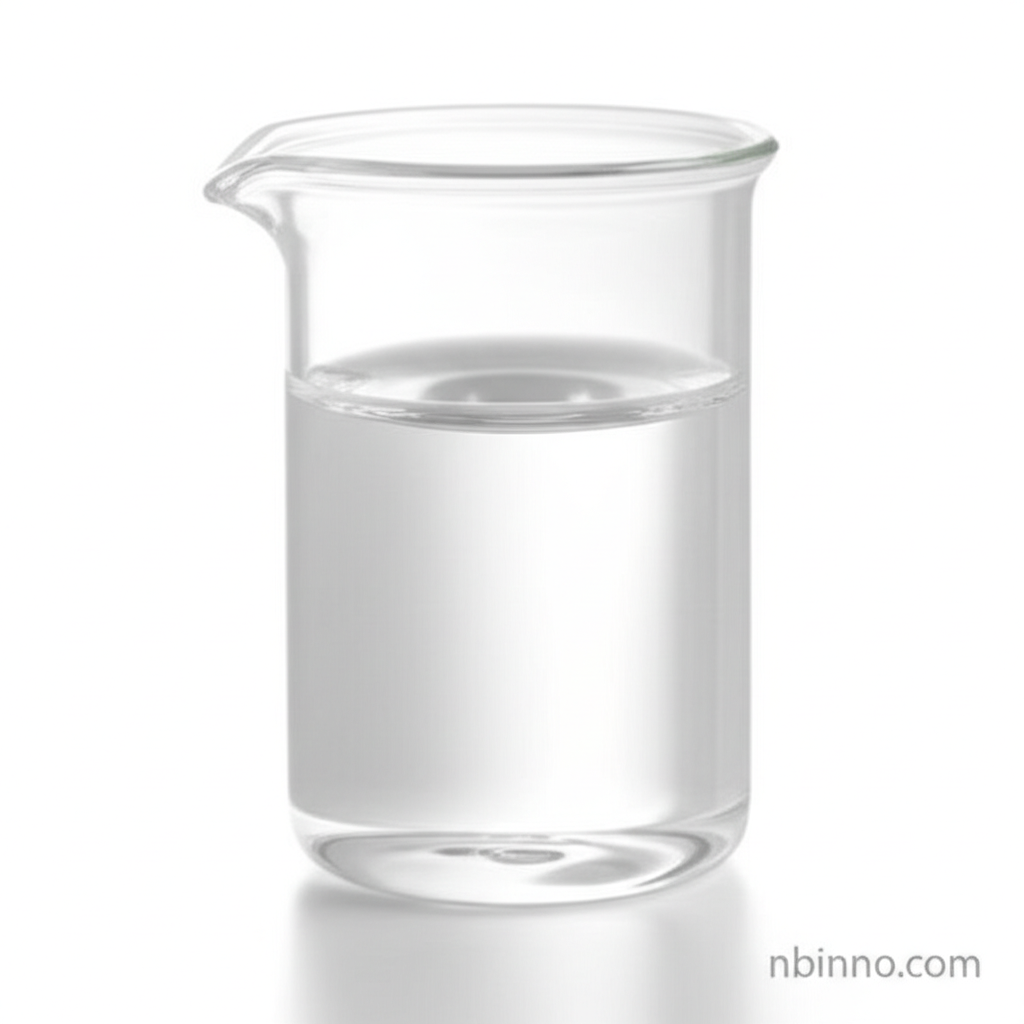Diethylene Glycol: Properties, Synthesis, and Industrial Applications
Explore the versatility of Diethylene Glycol (DEG) as a key solvent and chemical intermediate in various industries.
Get a Quote & SampleProduct Core Value

Diethylene Glycol
Diethylene Glycol (DEG) is a vital organic compound renowned for its exceptional solvent properties and its role as a critical chemical intermediate in numerous industrial processes. Its unique chemical structure, featuring two hydroxyl groups and an ether linkage, contributes to its wide range of applications.
- Discover the key properties of diethylene glycol, including its hygroscopic nature and miscibility with various solvents, making it ideal for specific industrial formulations.
- Understand the diethylene glycol synthesis methods, primarily as a co-product of ethylene glycol production, highlighting its industrial availability and cost-effectiveness.
- Explore the diverse industrial uses of diethylene glycol, from its function as a humectant in tobacco to its application in brake fluids and its role in producing polyester resins and polyurethanes.
- Learn about the critical role of DEG as a chemical intermediate, enabling the synthesis of other valuable compounds used in manufacturing.
Key Advantages
Versatile Solvent Capabilities
Leverage DEG's excellent solvency for a broad spectrum of organic compounds, facilitating efficient processes in chemical synthesis and formulation, a key aspect of diethylene glycol solvent applications.
Effective Humectant Properties
Utilize its hygroscopic nature as a humectant in industries like tobacco and paper manufacturing, helping to maintain optimal moisture content, a crucial aspect of its diethylene glycol humectant function.
Essential Chemical Intermediate
Benefit from its role as a building block for polymers and other chemicals, driving innovation in materials science and manufacturing, as highlighted in discussions of diethylene glycol chemical intermediate uses.
Key Applications
Solvent Applications
DEG is a preferred solvent for dyes, resins, oils, and various organic compounds due to its excellent dissolving capabilities, underscoring its importance in diethylene glycol solvent applications.
Resin and Polymer Production
It serves as a key component in the synthesis of unsaturated polyester resins, polyurethanes, and plasticizers, vital for the manufacturing of durable materials.
Humectant in Consumer Products
Its ability to retain moisture makes it valuable in tobacco products, inks, and adhesives, contributing to product quality and longevity.
Natural Gas Dehydration
DEG acts as an efficient dehydrant in the natural gas industry, preventing hydrate formation in pipelines and ensuring operational efficiency.
